A major X6.3 solar flare erupted from Active Region 3590 at 22:34 UTC on February 22, 2024. The event started at 22:08 UTC and ended at 22:43.
This is now the second X-class solar flare of the day (UTC), the third in 24 hours, the strongest solar flare of Solar Cycle 25, and the 26th strongest since 1996.
It follows X1.8 at 23:07 UTC on February 21 and X1.7 at 06:32 UTC on February 22, 2024.
A 10cm Radio Burst lasting 11 minutes and with peak flux of 240 sfu was associated with the event. A 10cm radio burst indicates that the electromagnetic burst associated with a solar flare at the 10cm wavelength was double or greater than the initial 10cm radio background. This can be indicative of significant radio noise in association with a solar flare. This noise is generally short-lived but can cause interference for sensitive receivers including radar, GPS, and satellite communications.
It appears a coronal mass ejection (CME) was produced but we are still waiting for reports of radio emissions that would confirm it.
Radio frequencies were forecast to be most degraded over the Pacific Ocean at the time of the flare.
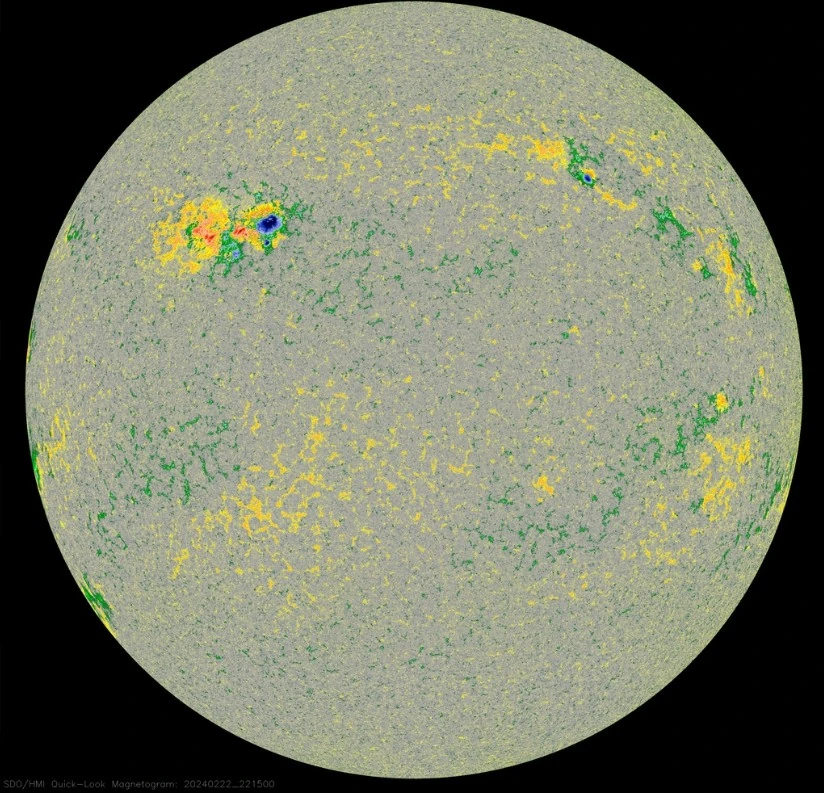
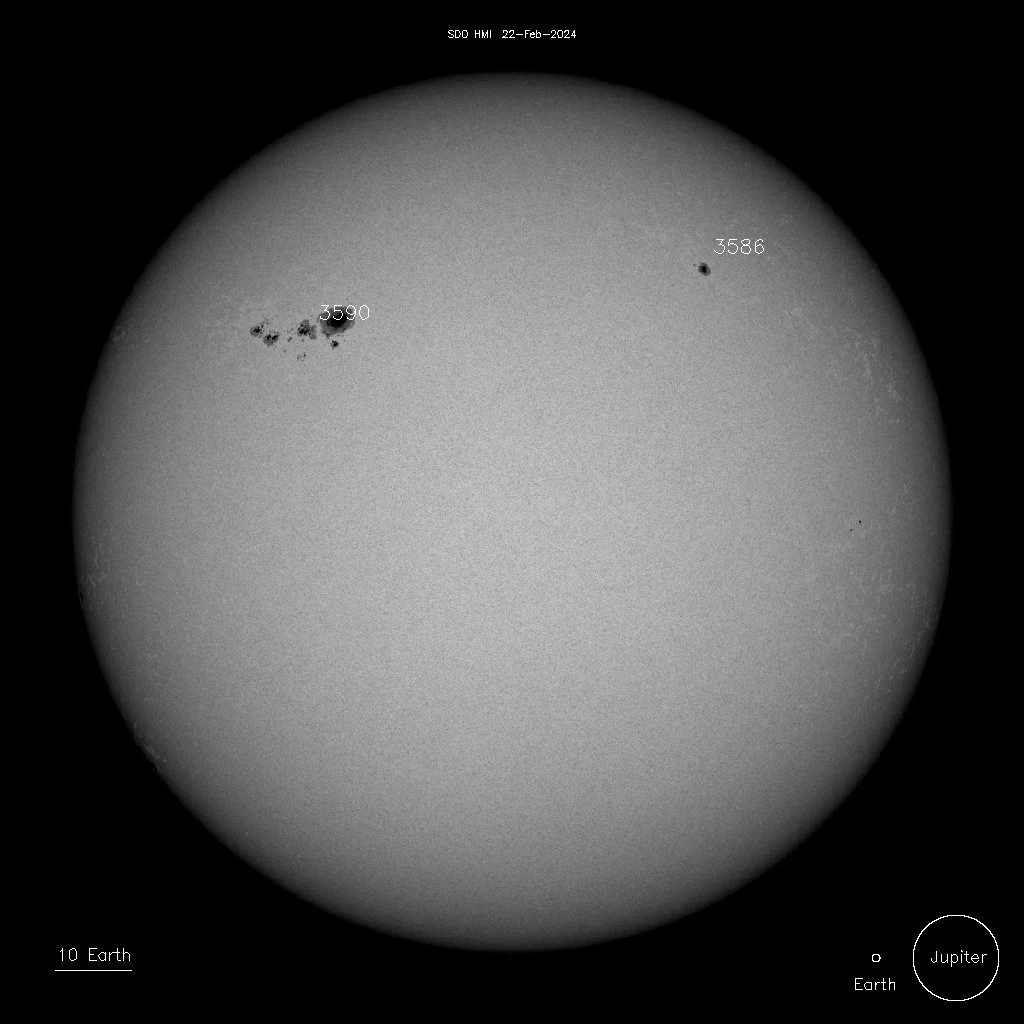

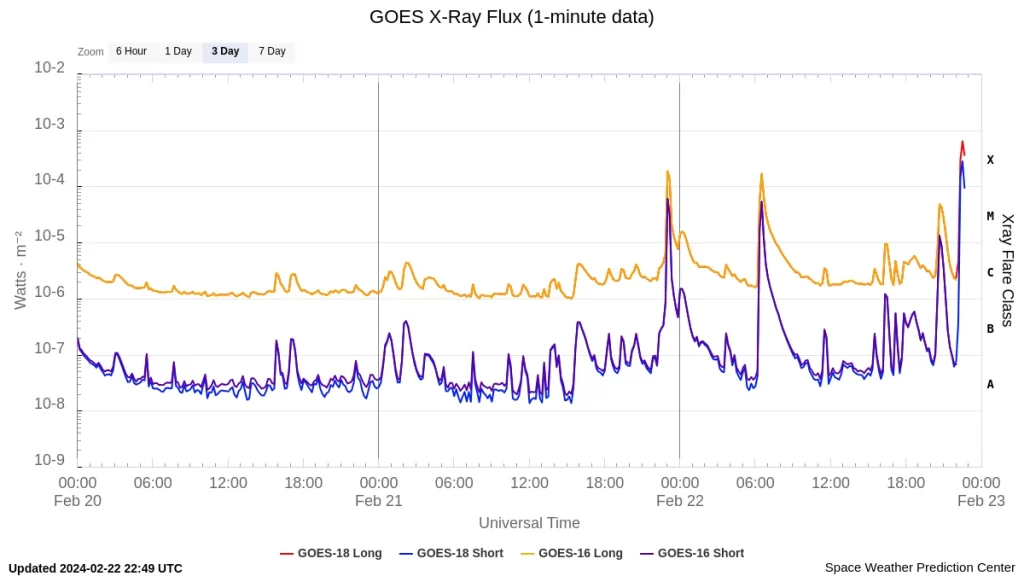

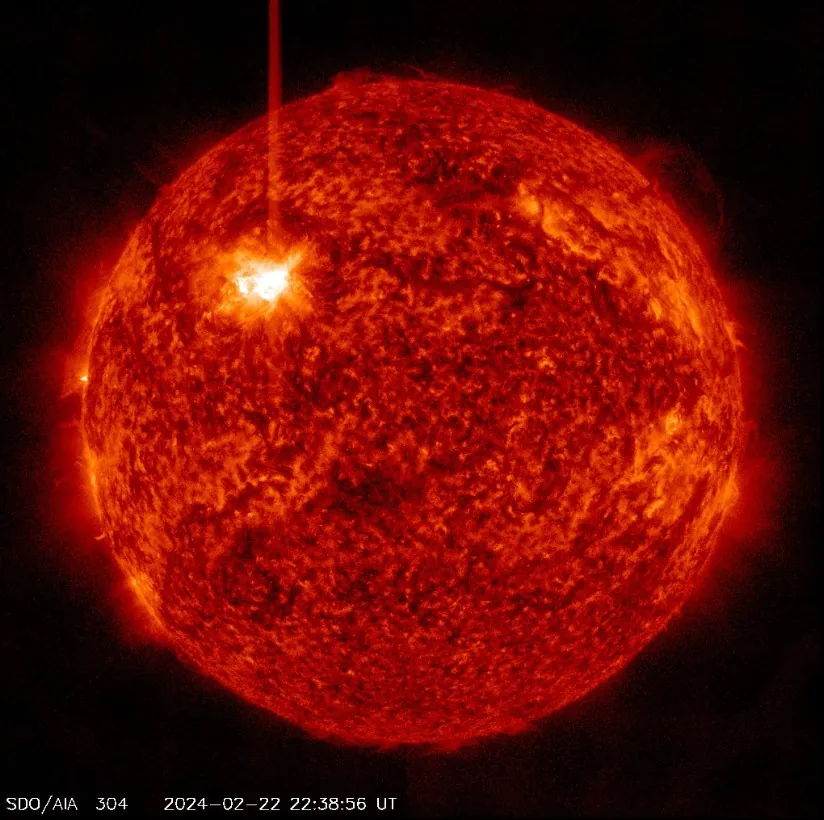

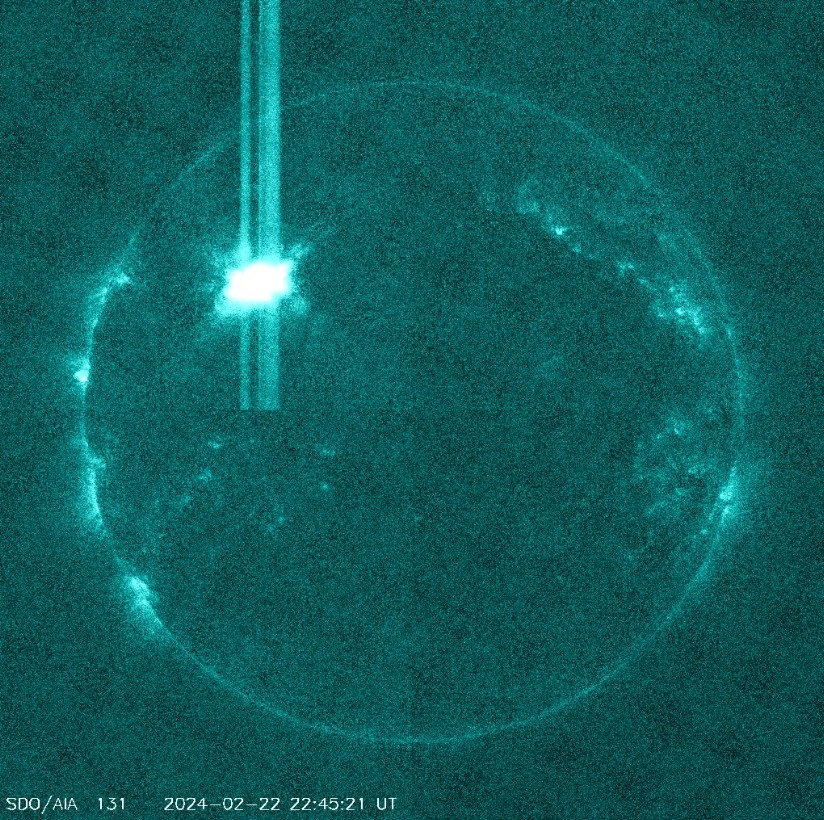

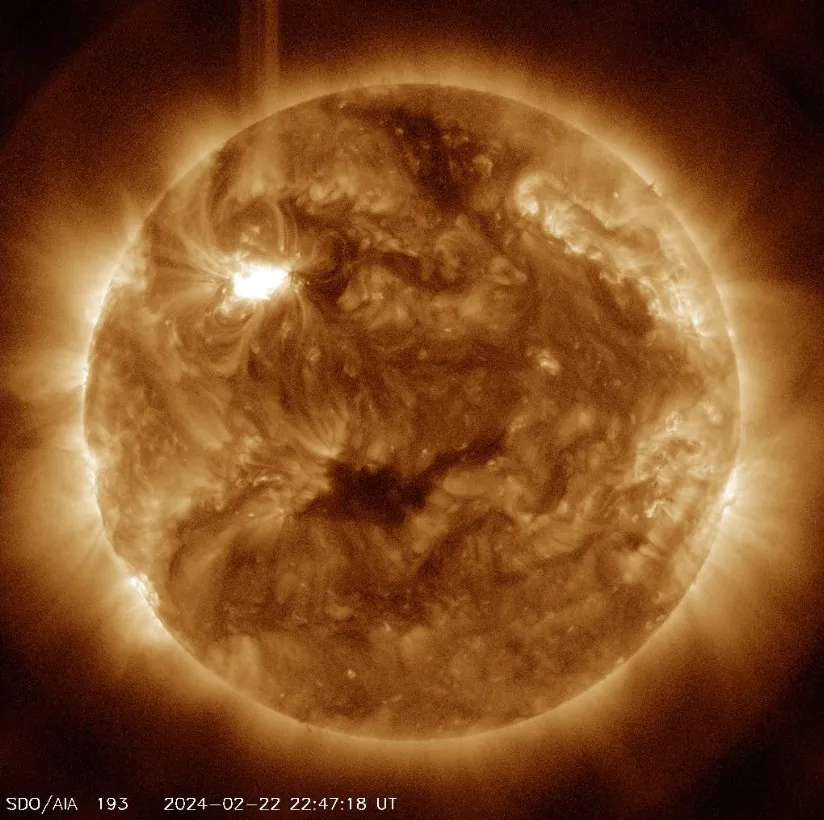

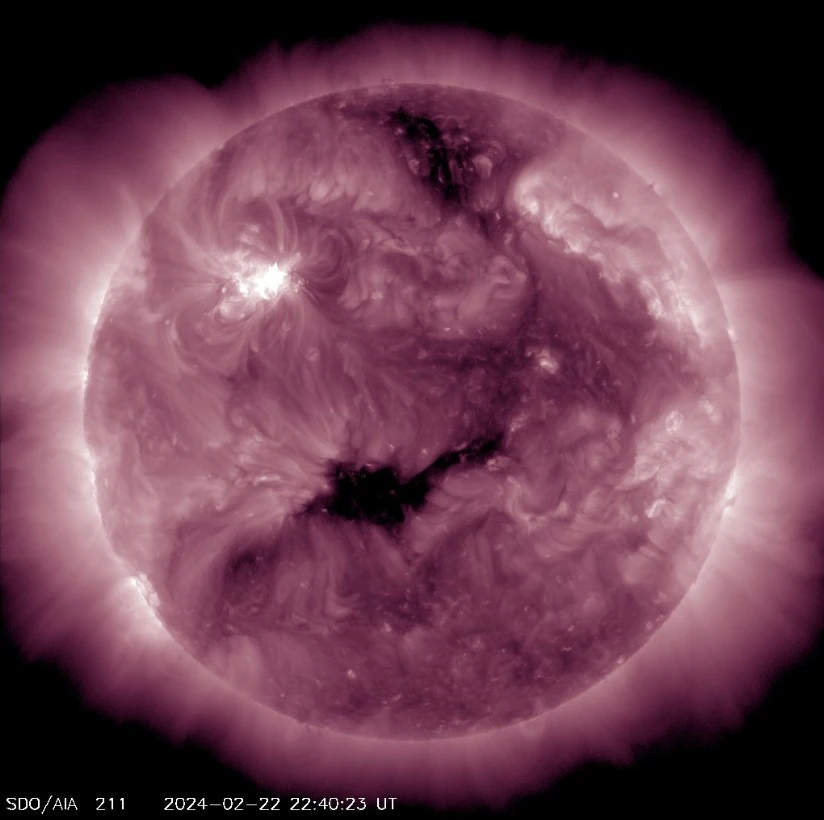

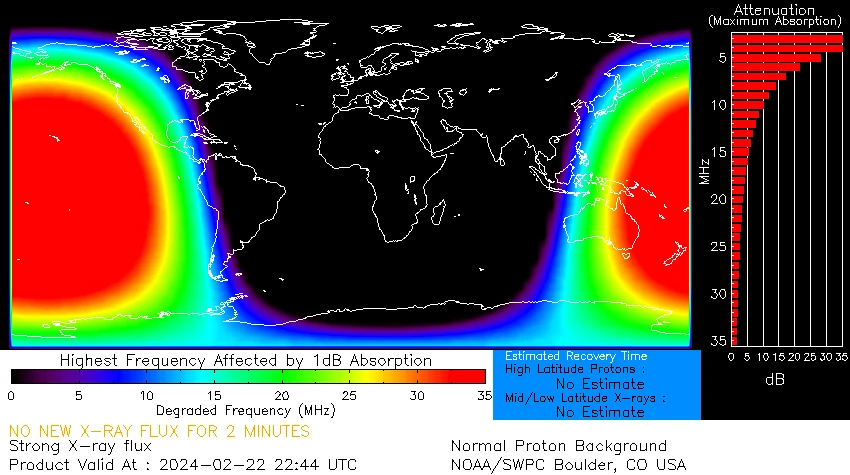

Analysis of this event is still in progress.
Featured image credit: NASA SDO/AIA 131, The Watchers
If you value what we do here, create your ad-free account and support our journalism.
Two X-class solar flares – X1.8 and X1.7 erupt from Region 3590
Thursday, February 22, 2024
Major X2.5 solar flare erupts from AR 3576, producing large CME
Friday, February 16, 2024
Three CMEs heading toward Earth, impact expected on February 13
Monday, February 12, 2024
Proton flux rising after powerful farside eruption, S1 – Minor solar radiation storm
Monday, February 12, 2024
M6.5 solar flare erupts from AR 3576, G2 – Moderate geomagnetic storm watch
Monday, February 12, 2024
Strong M9.0 solar flare erupts from geoeffective Region 3576
Saturday, February 10, 2024
Major X3.3 solar flare erupts behind the SW limb, S2 – Moderate solar radiation storm
Friday, February 9, 2024